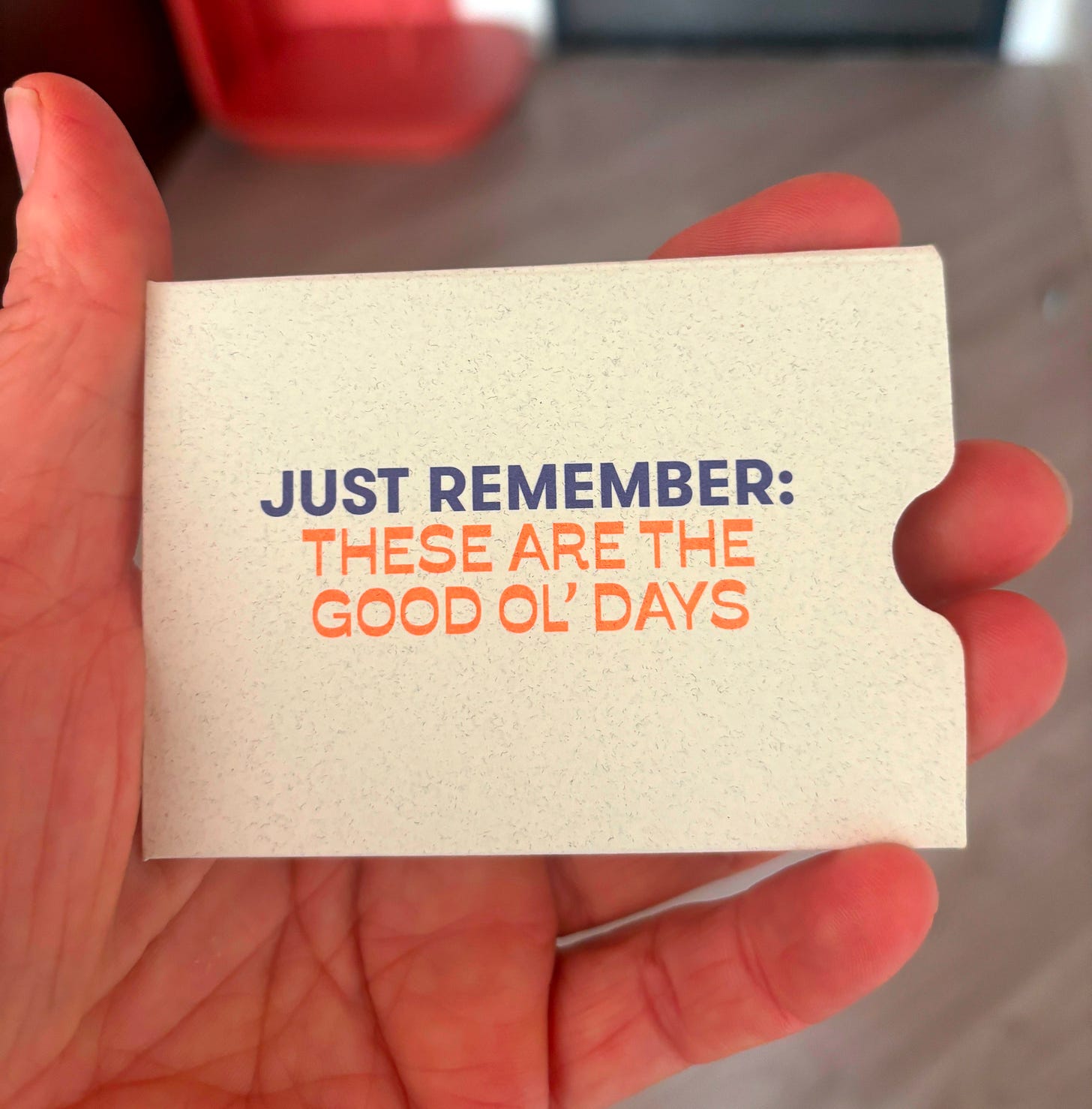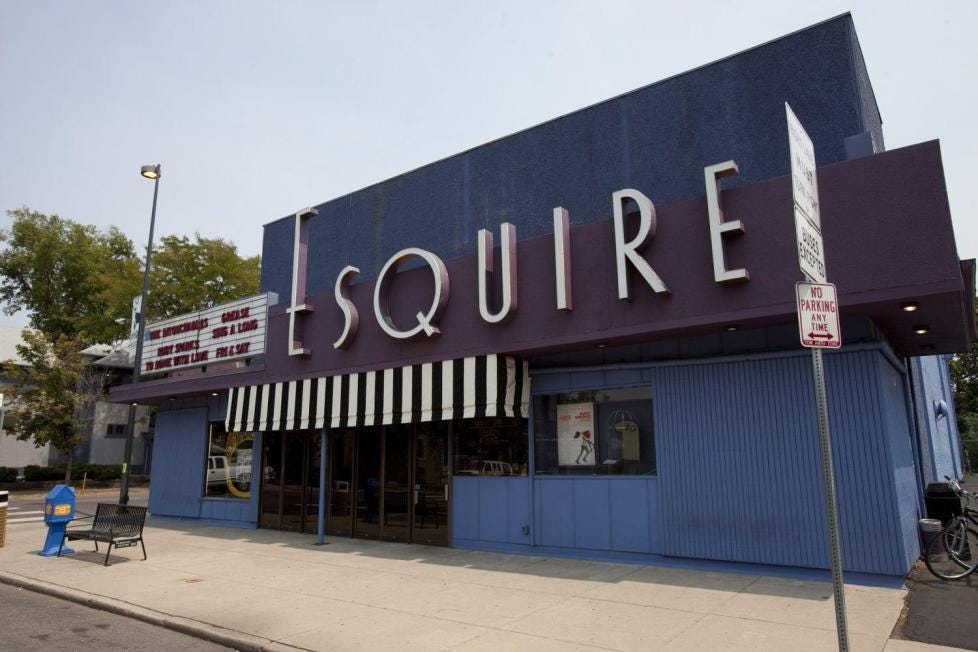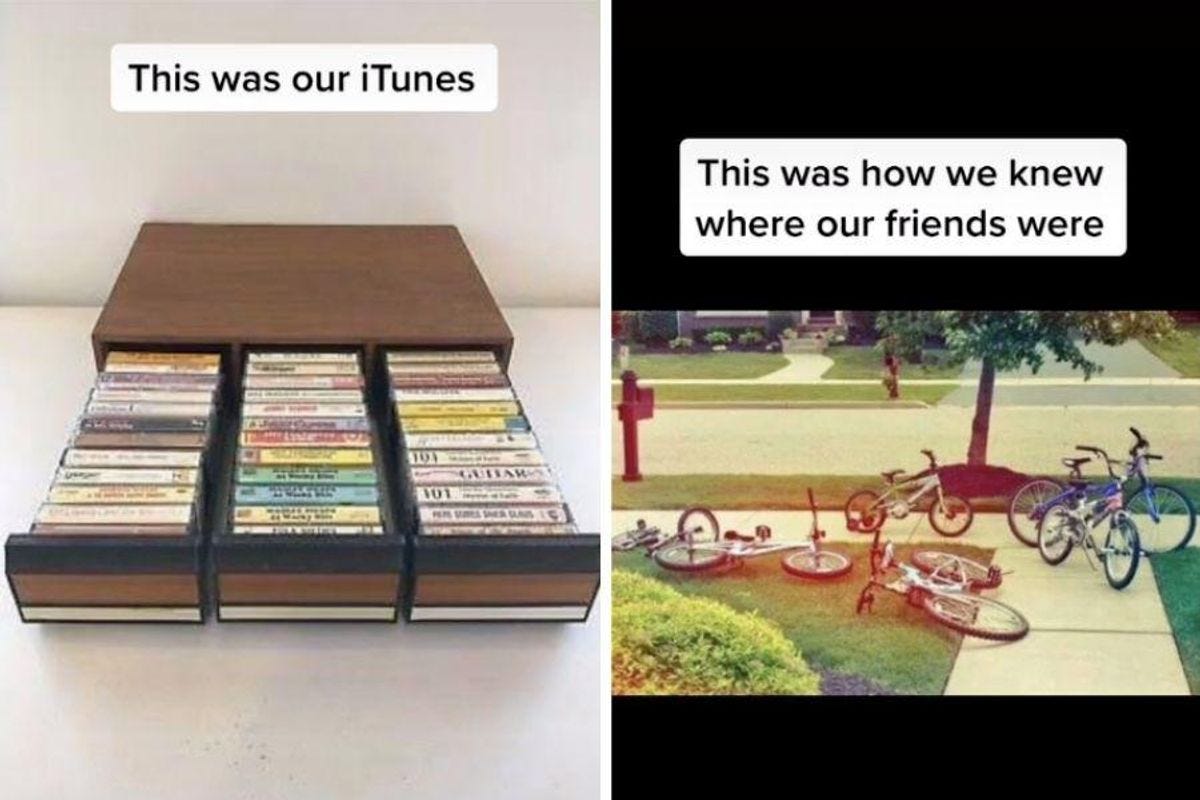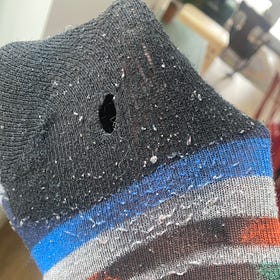Last night, Eric and I were driving home down 6th Ave in Denver when we passed the shuttered remains of The Esquire, an “arthouse” Landmark Theater, where I saw Amelie, Like Water For Chocolate, and Dangerous Liasons when those films came out in the 80s and 90s. And decades later, as did many before him, my own queer teenager made weekly pilgrimage in costume to The Esquire for The Rocky Horror Picture show, that cultural Ollie Ollie in come free for young weirdos trapped in the normalcy of high school.
“So I guess we lose that too” I say to Eric. And then I completely lose the next couple hours reflecting on places that are gone now.
Like The Market in Larimer Square, the coffee shop and deli where I was employed for half a year when I was 19. The manager used to give me lines of cocaine if I stayed late to help him close and once the owner told me to shave my armpits because I “look like a fucking gorilla” but it felt like a compliment. It closed at the start of the pandemic.
And Ms. C’s the lesbian country western bar where I learned the two-step. A place of pure joy; cowgirls would drive their trucks down from Cheyenne to dance with their girlfriends under a mirrored disco ball in the shape of a saddle. Closed in 2009.
And Greens the natural foods restaurant on Colfax Ave (once described in Playboy as “The longest, wickedest street in America”) where I worked 89-94. It was at Greens where I first ate foods I have loved ever since: polenta, goat cheese, sun-dried tomatoes, green chili, cheese enchiladas. The crew were mostly either artists whose art openings we all show up at on the weekends or musicians whose shifts we would cover when they’d call in sick because they were also junkies. These are the people who turned me on to Josephine Baker and Urge Overkill and Colette’s novels and we all knew what was playing at The Esquire that week. Closed in the late 90s.
So all of that is to say that I’ve been thinking about nostalgia and memories and loss quite a bit.
When I look back at a time that once was but now is no longer, what I think I am doing is being wistful, and sometimes that is the case, but often what I am really feeling is grief. Grief for a time in life when I felt belonging and it felt like the world sort of made more sense, and there were only 4 TV channels to choose from.
But when I finally lift my head from the narcotic lure of this particular type of thinking, I remember that the past was every bit as complicated as the present, perhaps not technologically so, but certainly in every other way, because the past was inhabited by human beings, and human beings have not changed. We are just as deceitful and loving and generous and horrible and beautiful as always. Which means that every time in human history, be it our “glory days” or our sunset years, is reflective of human complexity. Nothing is only ever one thing, as I like to say.
I do not know what the trick is to seeing the past as it was, or the non-anxious allowing for the ending of things and the beginning of others. I’ve never quite done any of this in an elegant manner. But when I realize I am being nostalgic, I’m stopped in my tracks by what the great Hebrew Bible scholar Walter Brueggemann said about Psalm 137.
By the rivers of Babylon we sat and wept
when we remembered Zion.
It’s easy to weep when reflecting on the past, on a time when we felt we belonged to something, when we were regarded in way we feel we no longer are, when people we loved were still with us.
What can we do but weep when we feel the weight of what was lost?
But here’s the thing, Brueggemann claims that the elites who were taken into Babylonian exile, are not the most reliable narrators of what Jerusalem was really like when they still lived there. Because elsewhere in the Hebrew scriptures, a more dire picture is painted of Jerusalem - one that is inflected with the sort of injustice that bodes not at all well for orphans, widows and the poor. But the elites when looking back, long for the return of this (read: their) “better time”.
You’d be forgiven for not knowing how Psalm 137 ends, I didn’t until I went to seminary. Maybe because my familiarity centered mainly around a great reggae song.
As great as that song is, it leaves out the end of Psalm 137:
Remember, Lord, what the Edomites did
on the day Jerusalem fell.
“Tear it down,” they cried,
“tear it down to its foundations!”
Daughter Babylon, doomed to destruction,
happy is the one who repays you
according to what you have done to us.
Happy is the one who seizes your infants
and dashes them against the rocks.
It starts with nostalgia, then goes to weeping, then trying to co-opt God into violence against the babies of those deemed responsible for the loss of an imagined golden era.
So here’s what Brueggemann has to say:
“Excessive nostalgia for a past that never existed will lead to violence against those who have taken from us what we falsely remember—as in, ‘Make Jerusalem great again,’” Walter Brueggemann.
Yikes.
Psalm 137 offers an extreme but useful caution. It allows me to stop when I realize I’ve been riding the nostalgia train for too long. Because seeing how others have weaponized idealized versions of personal history helps me admit when I am also diving into the waters of the past and coming to the surface with only shiny treasures. So I try to not forget that there are some shipwrecks down there too. The seas of my life are filled with both. And to think back and be convinced it was either all glory or all misery is its own form of robbery.

The truth is that we can only hold handfuls of life at a time and room must be made for what enters next. Maybe to live a human life is to lose everything while also gaining everything. We cannot, by the force of our will, increase what our hands can hold. The limits are hemmed in. We cannot take a pick axe and force tiny chips of the past to flake off into our grasp so we can keep them and still hold what today brings.
The truth is that we can only hold handfuls of life at a time and room must be made for what enters our human hands next.
There is a time for everything, as the writer of ecclesiastes says, but the time for everything can’t be all at once.
There is a time for everything,
and a season for every activity under the heavens:a time to be born and a time to die,
a time to plant and a time to uproot,
a time to kill and a time to heal,
a time to tear down and a time to build,
a time to weep and a time to laugh,
a time to mourn and a time to dance,
a time to scatter stones and a time to gather them,
a time to embrace and a time to refrain from embracing,
a time to search and a time to give up,
a time to keep and a time to throw away,
a time to tear and a time to mend,
a time to be silent and a time to speak,
a time to love and a time to hate,
a time for war and a time for peace.-Ecclesiastes 3
You know what I didn’t have in the Denver days of Greens and The Esquire? A graduate degree and health insurance. I never once felt the contentment that fills my days now. I didn’t have my children or the career I love. I didn’t have long term sobriety.
I guess what I am trying to get at again (because I am a slow learner), is that I don’t want to steal from myself anymore. I want to stop longing for what is gone and notice more deeply every good thing that is NOW. I want to appreciate in the moment what I might be tempted to miss when it’s over and I simply cannot do that effectively while romanticizing what was.
Related posts:









These reflections were really beautiful and timely, thank you. I have been grieving life changes and impermanence more than usual in the last year, after moving states, and transitioning from youthful health to post-injury life and a new normal. Life is expansion and contraction; growth and decay; birth and death and rebirth. I think I was born again - again - this year.
Oh, thank you, because I needed this message. My nostalgia has been mainly focused on all of the lost opportunities. TBH, though, I wasn't anywhere near ready for those opportunities. That's what brings me back to the present.